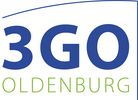Although the distances are short and the border hardly noticeable, the working culture and scientific systems of the neighboring countries Germany and the Netherlands are very different. This workshop gives PhD students* and Post Docs of the University of Oldenburg the opportunity to familiarize themselves with the realities of both countries. The following topics will be addressed:
- Communication and decision-making processes: What is important to consider during a first contact? When is a commitment binding?
- Feedback and error culture: How is criticism expressed?
- Cultural identity: What values have developed historically, how did they come about, what continues to have an effect today?
- Self-perception and perception by others: What has shaped me culturally? How does my behavior affect others?
- Science systems in both countries: Performance orientation, state funding, doctoral studies, assessment, error culture.
The aim is to become aware of differences and to better understand the different ways of working - with the goal of achieving well-functioning cooperation in practice and being able to move confidently in both contexts.
Great emphasis is placed on an interactive way of working: The seminar is structured in such a way that participants can bring in their own experiences and needs and work on these.
Target group: Doctoral candidates and Postdocs



